Paul Rouphail: The Ideal Room
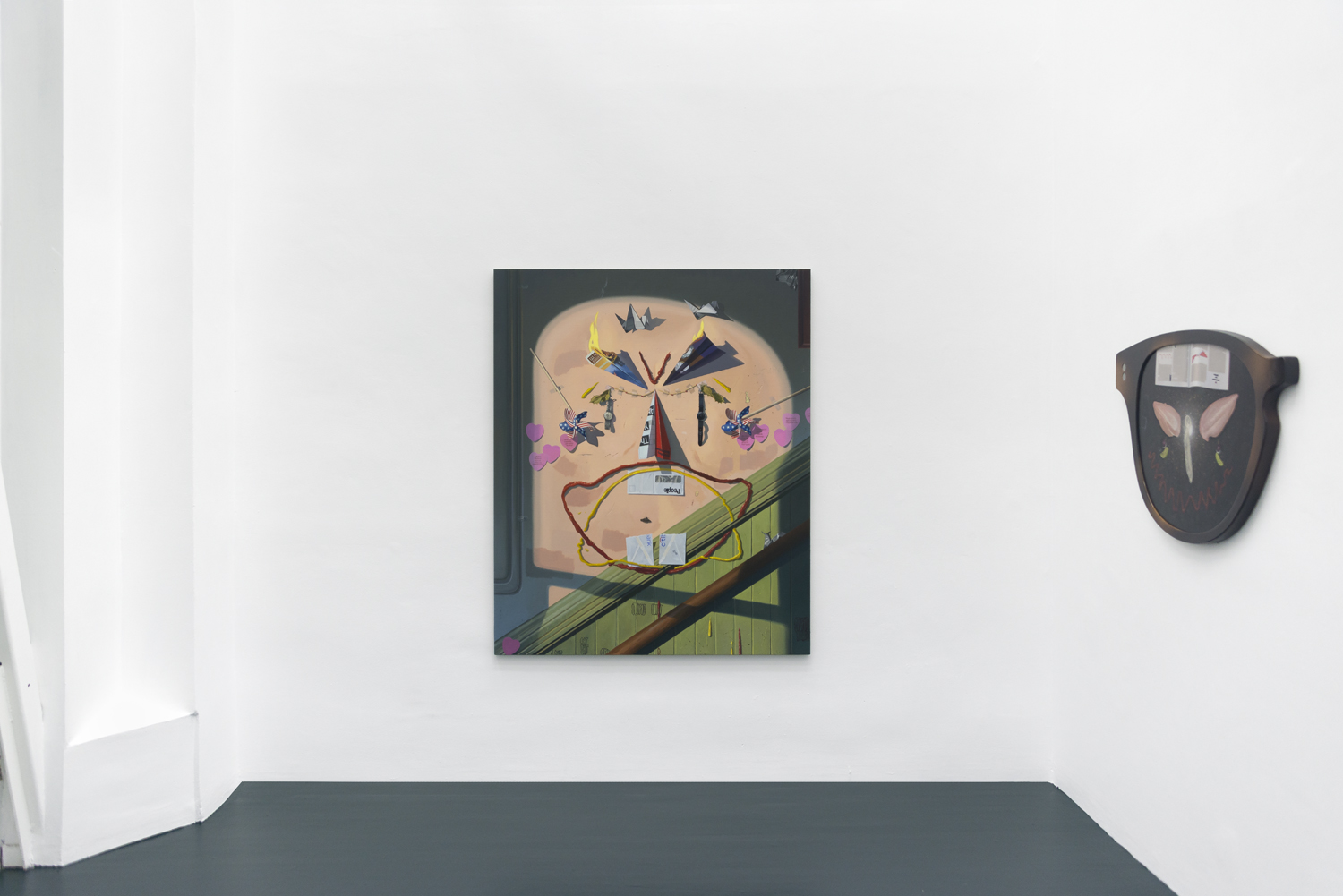
SMART OBJECTS presents The Ideal Room, a solo exhibition of new paintings by Paul Rouphail. This will be Rouphail’s second solo show with the gallery.
9.7 – 10.13
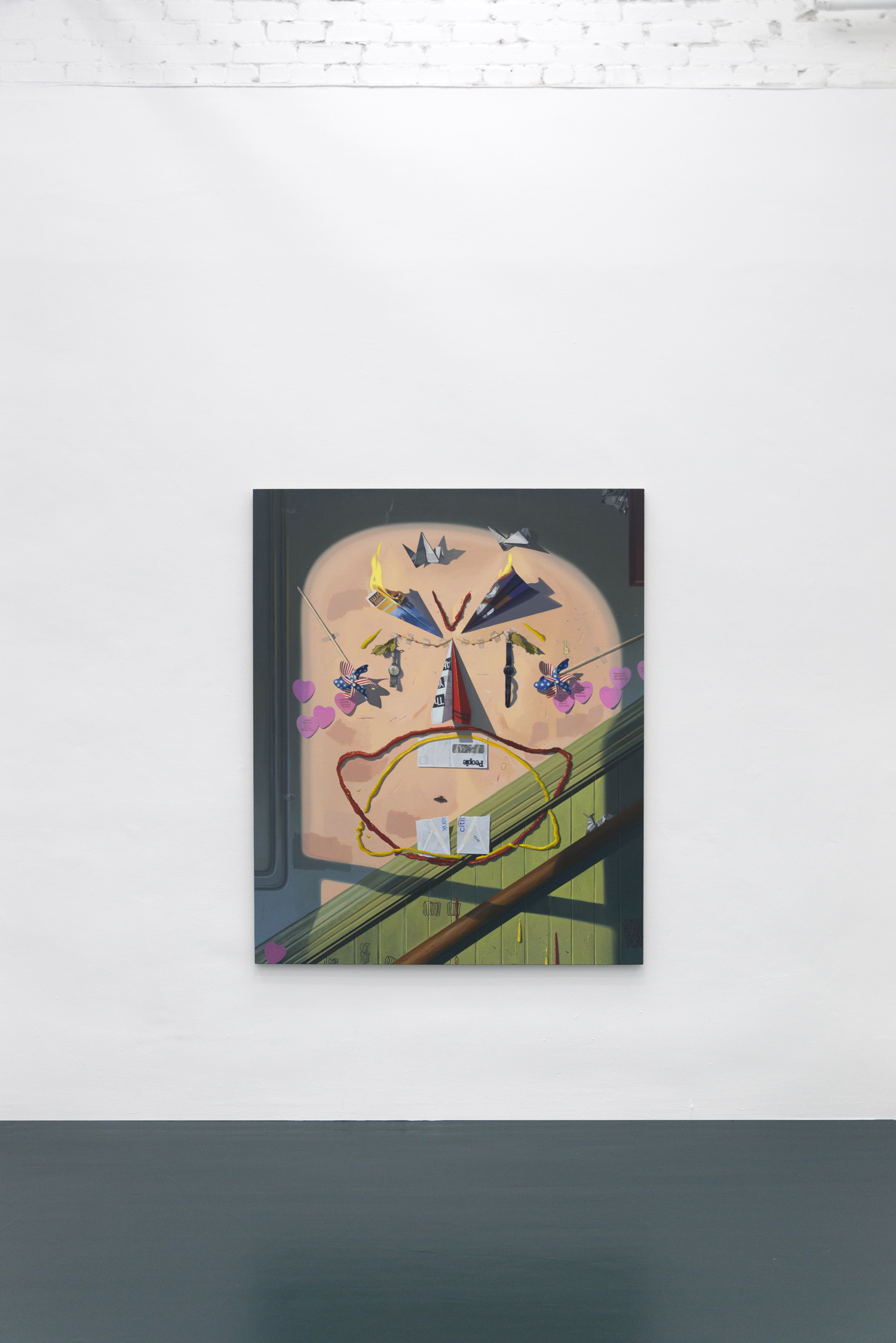
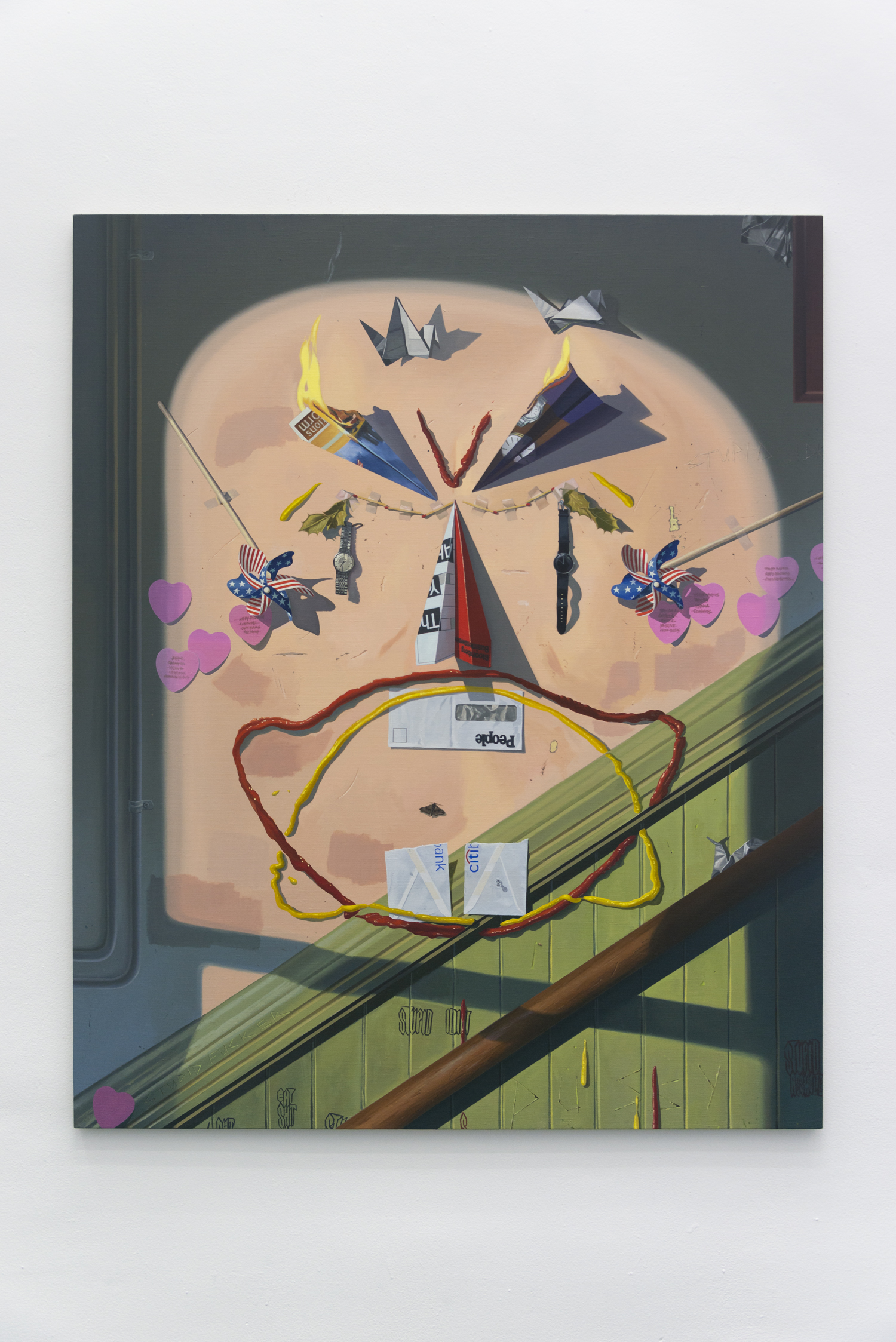
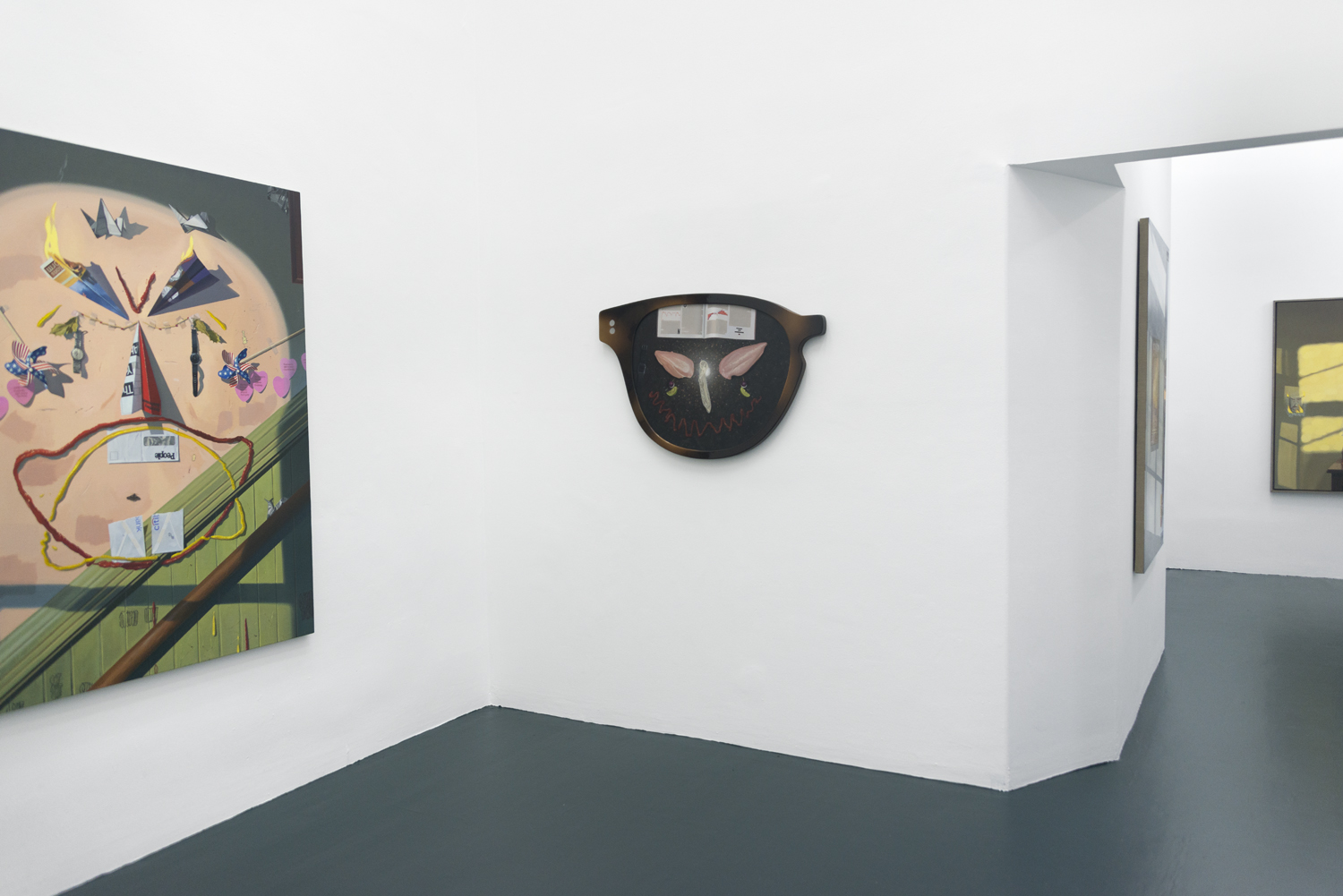
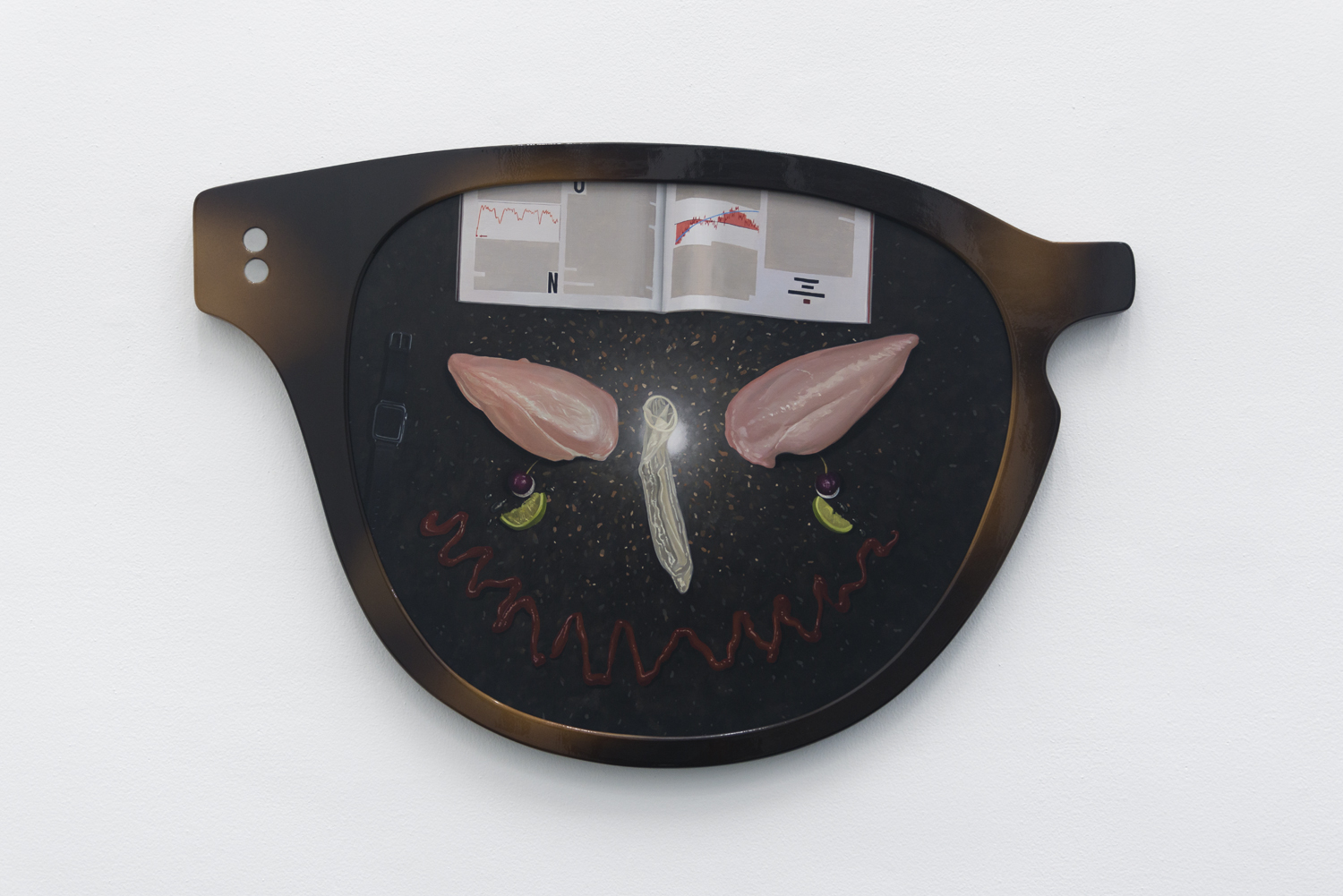
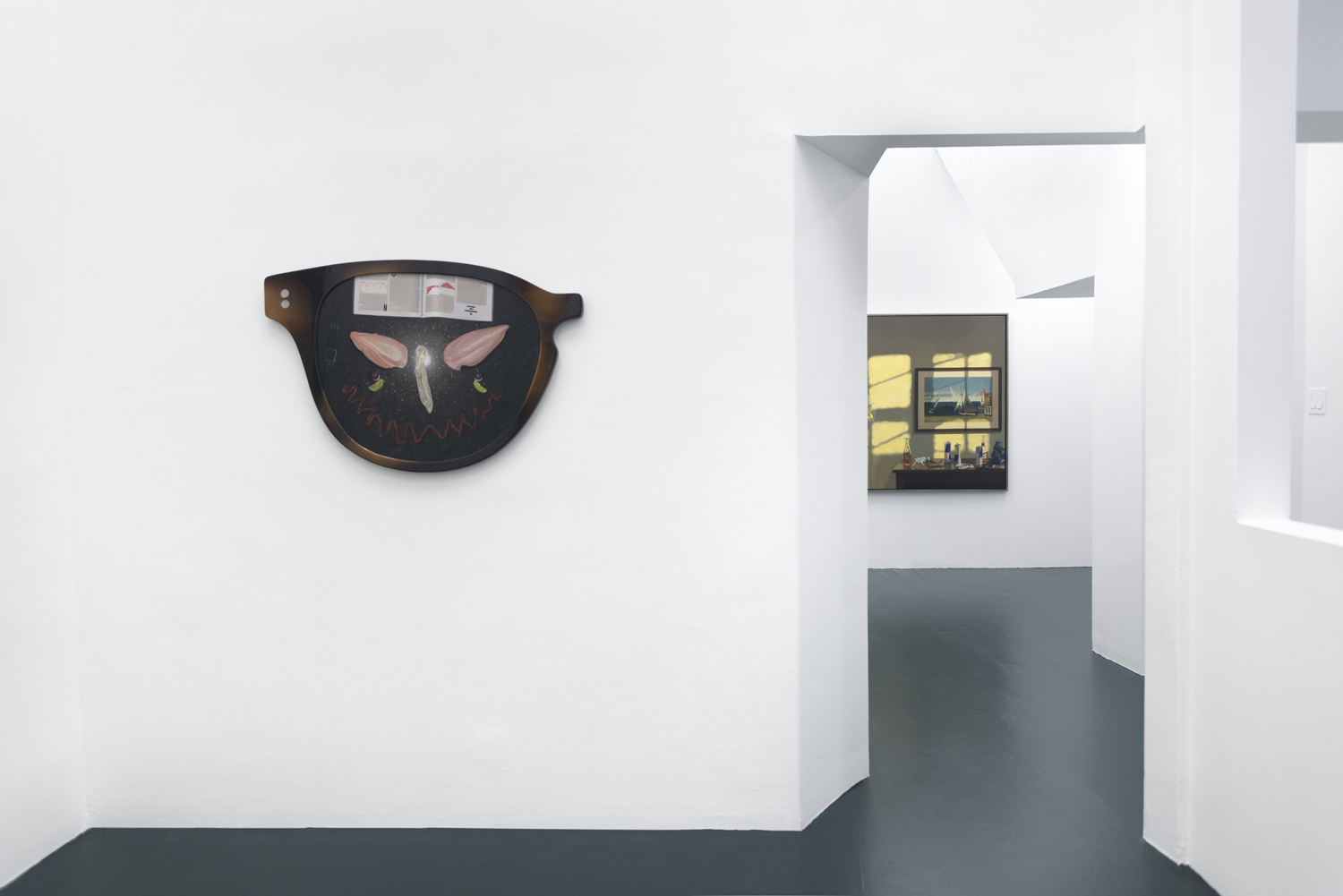
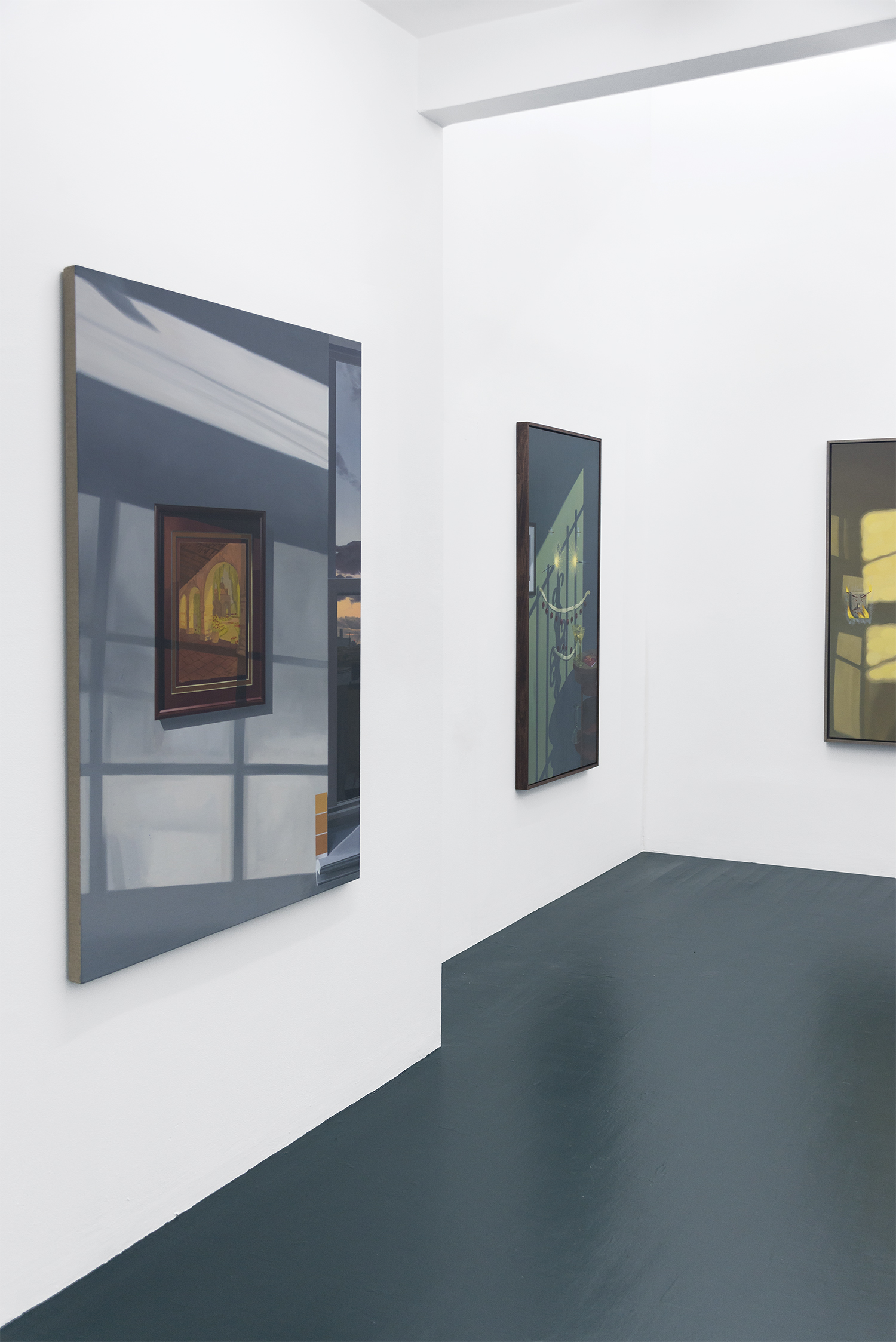

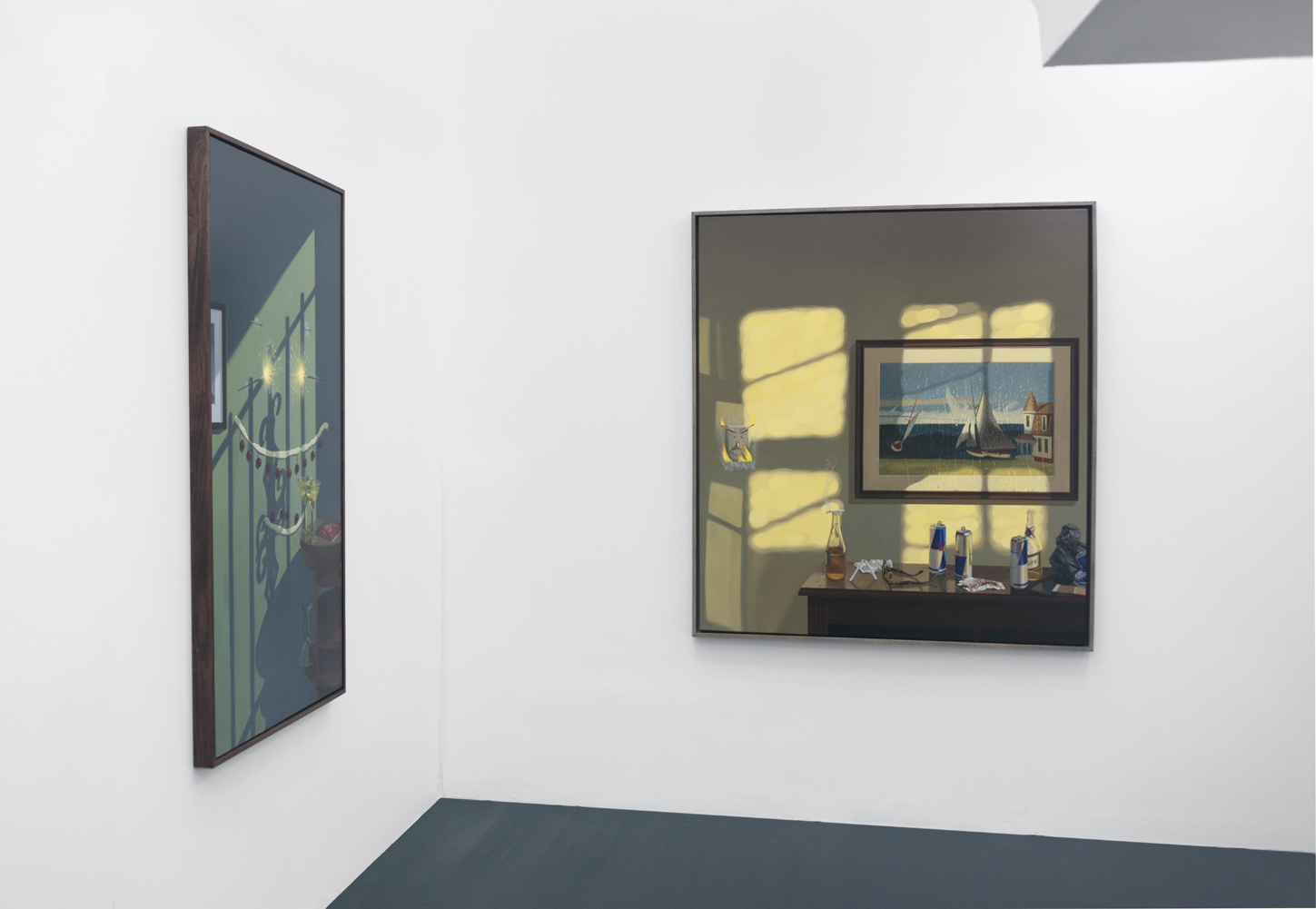
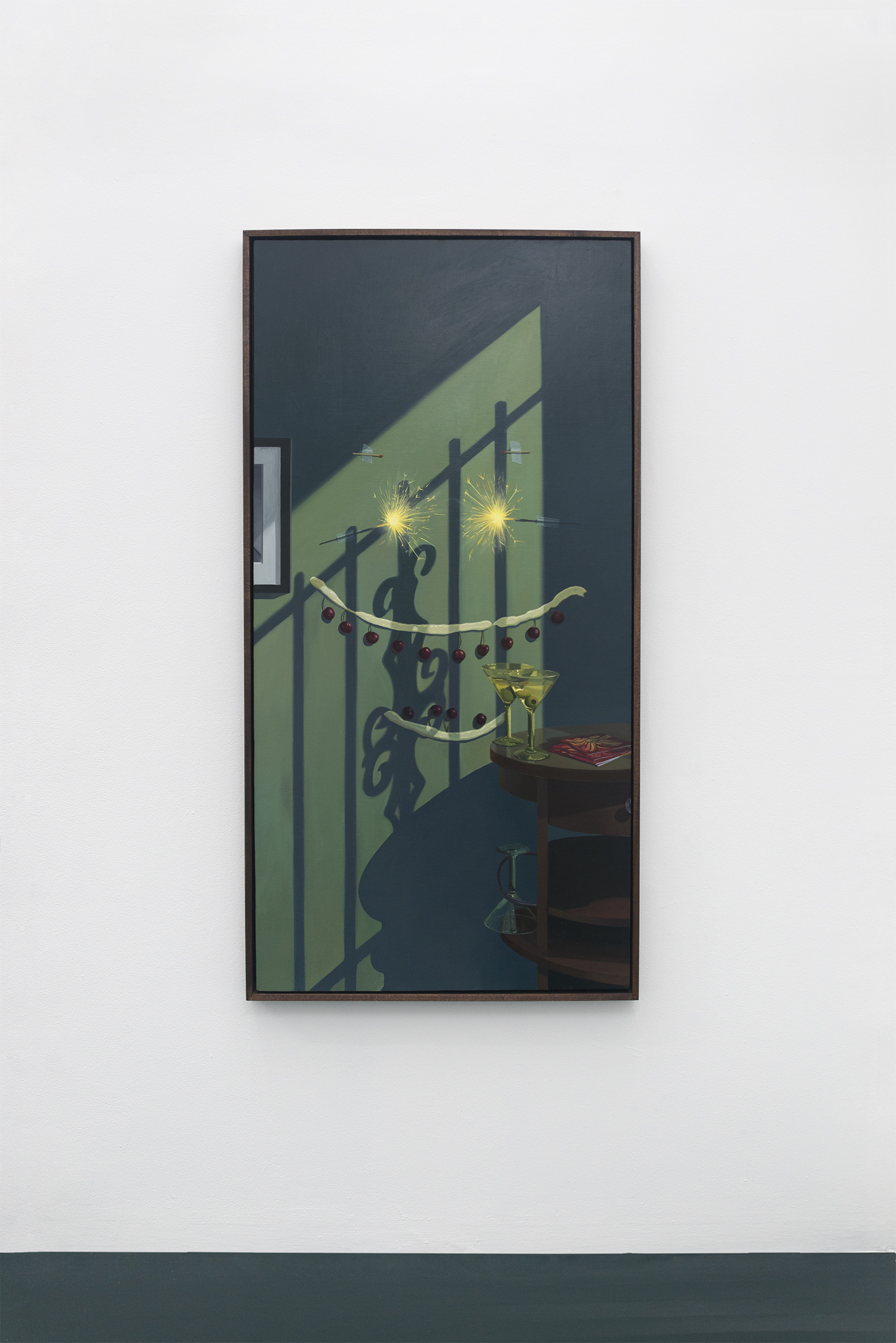
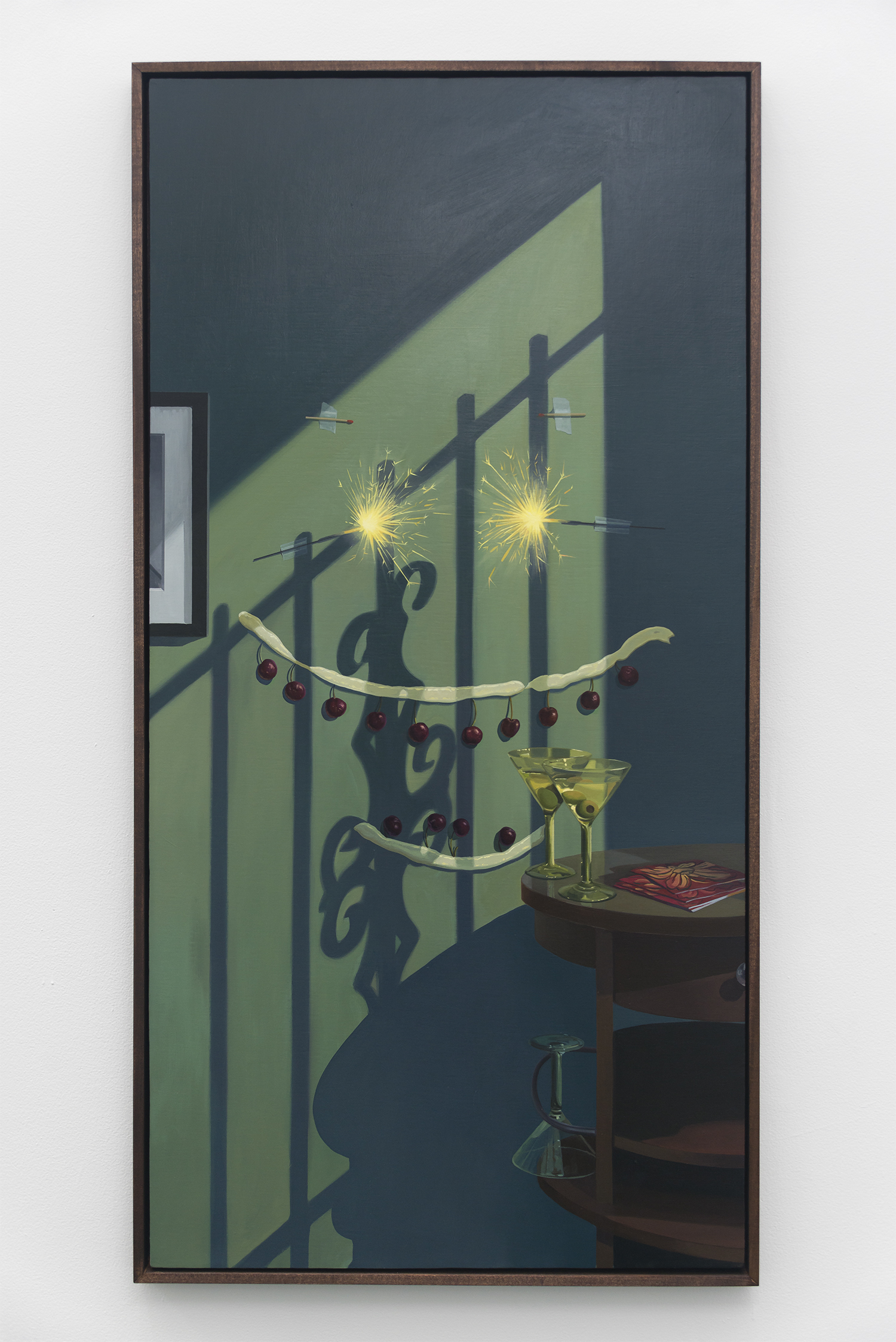
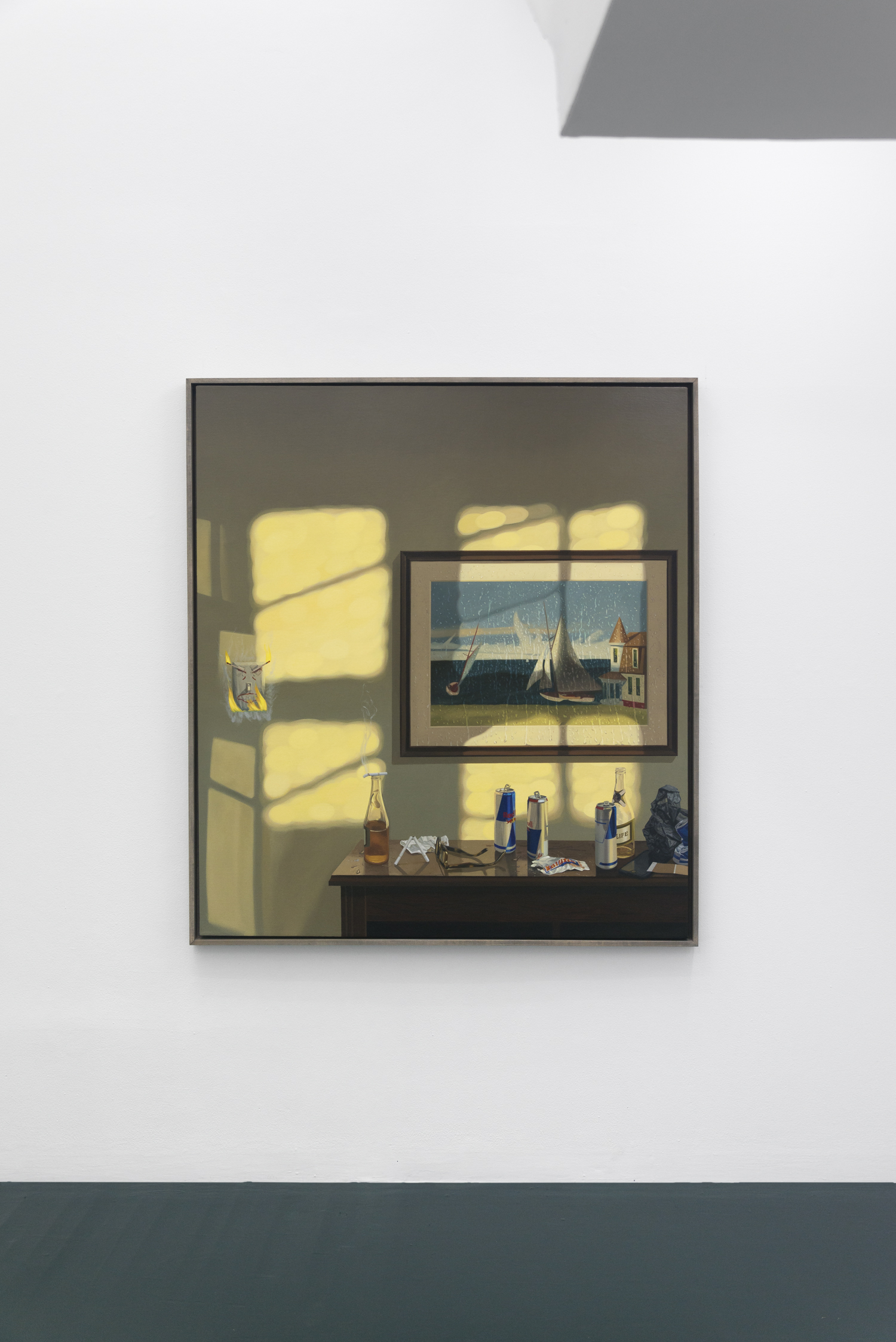
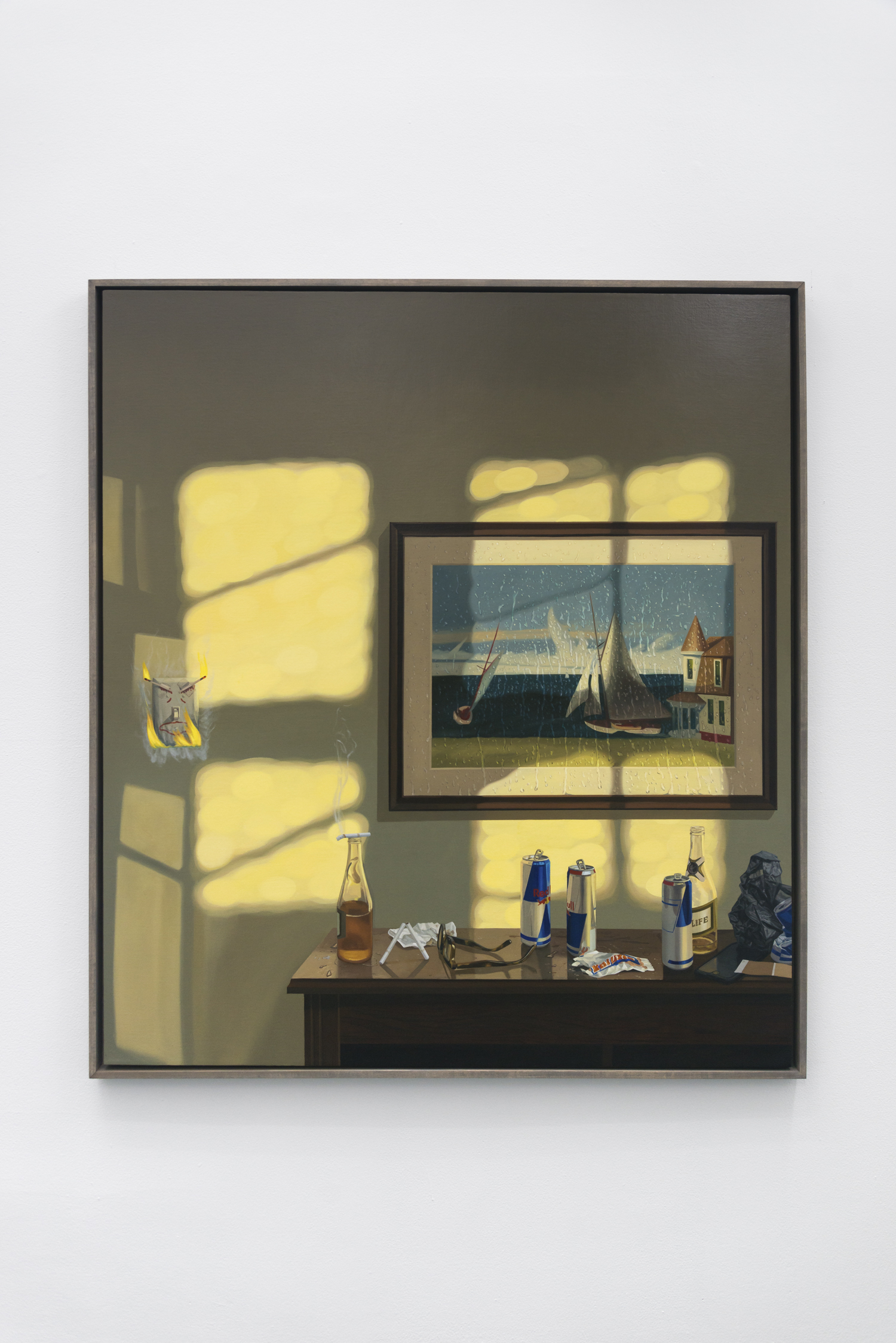
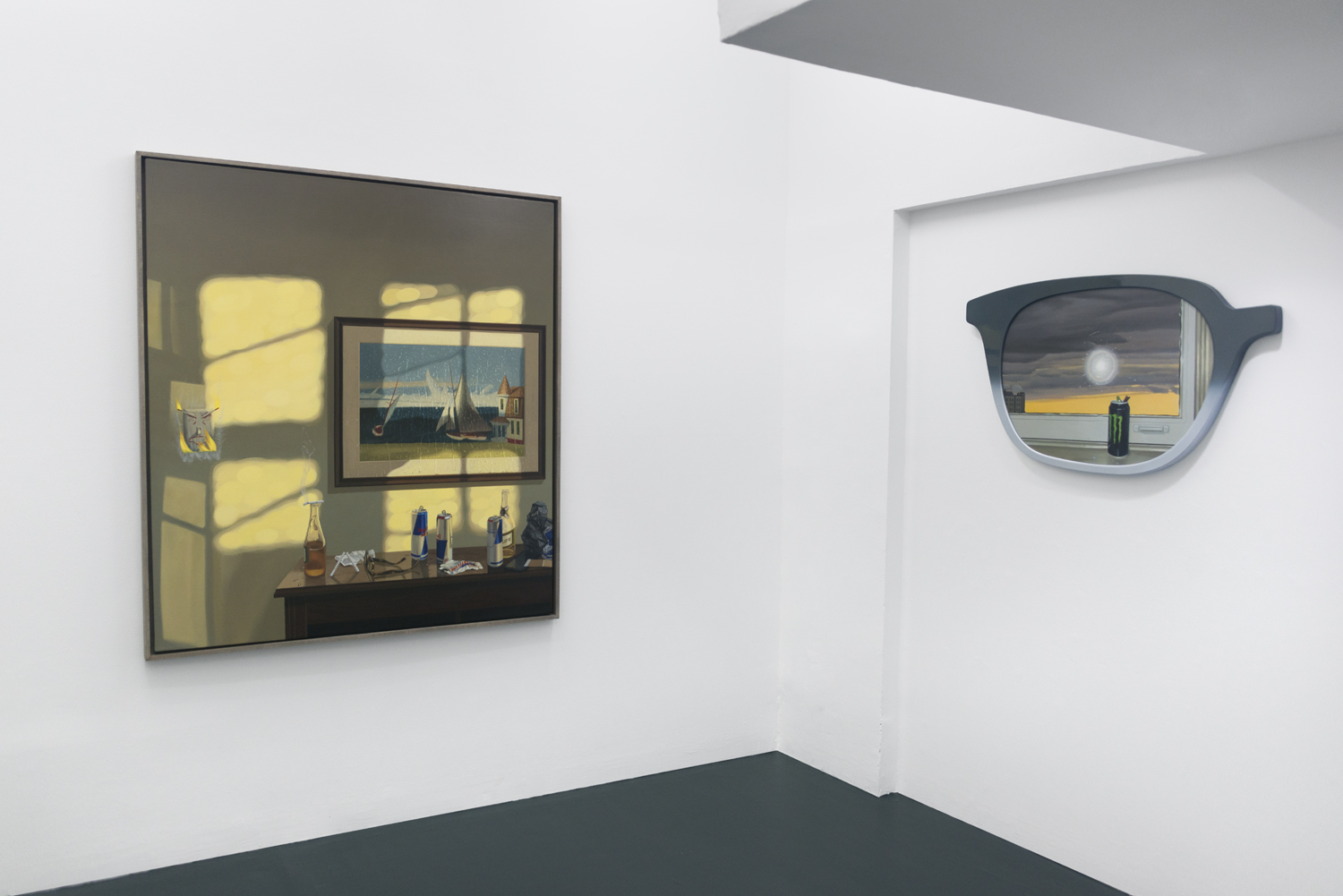
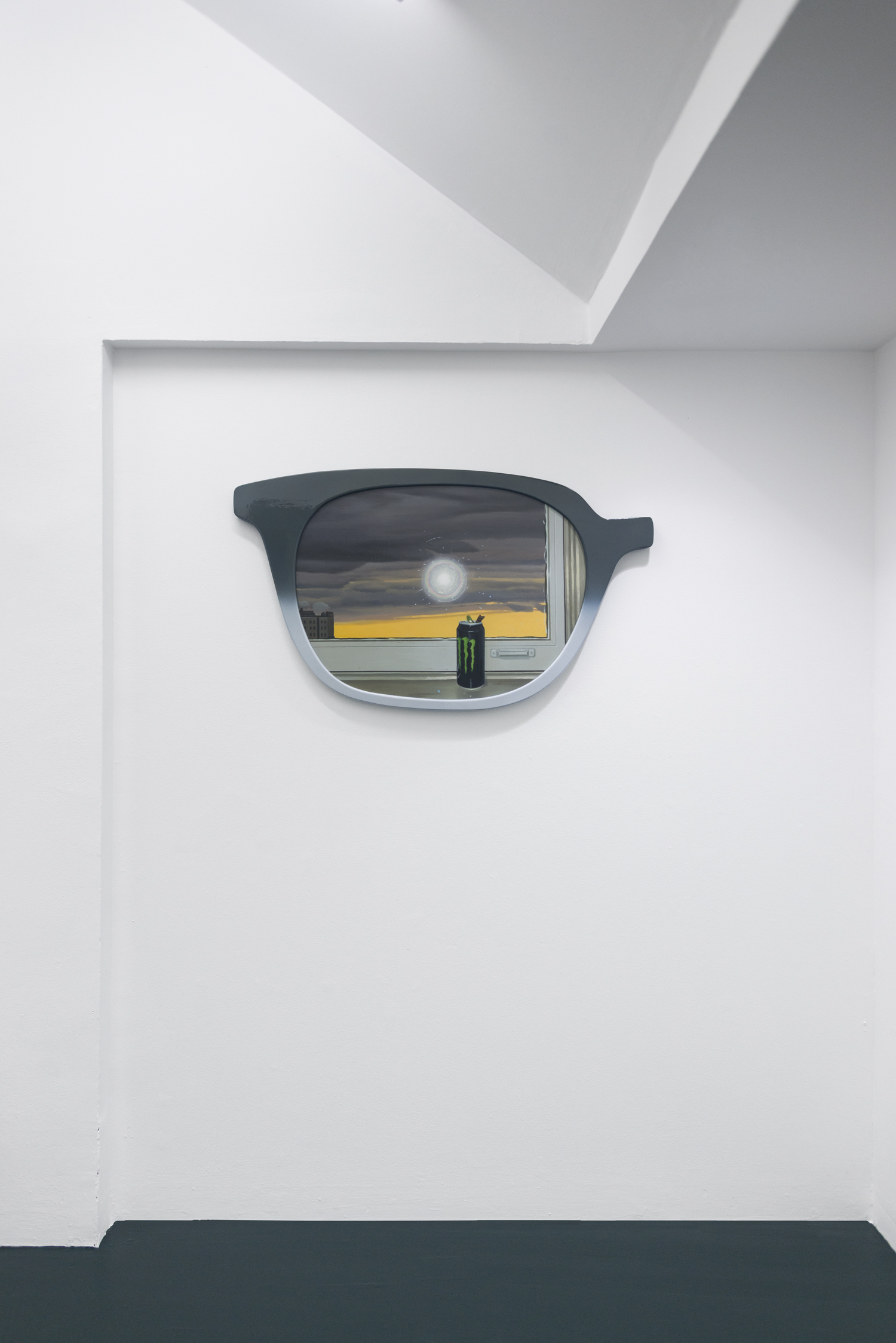

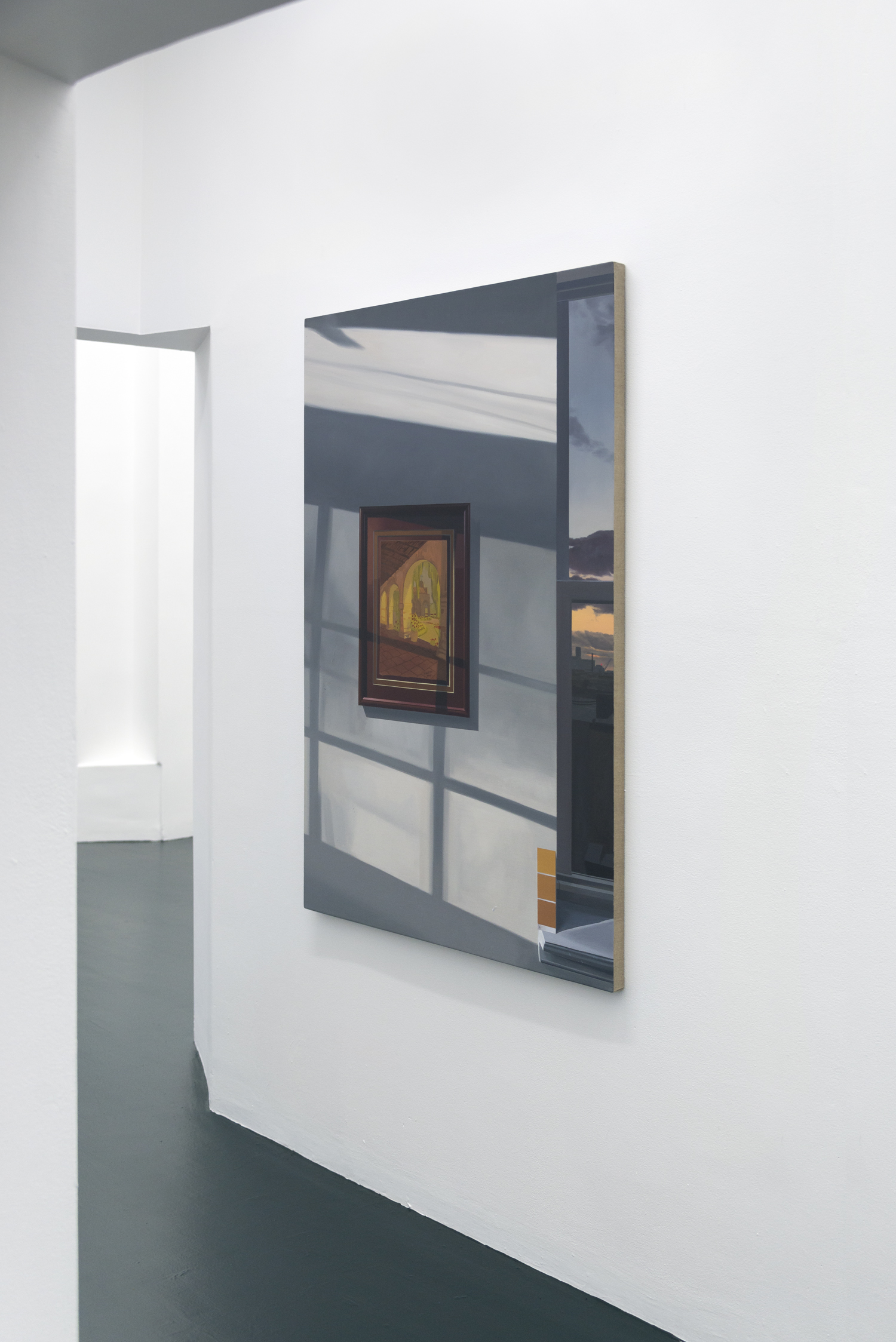
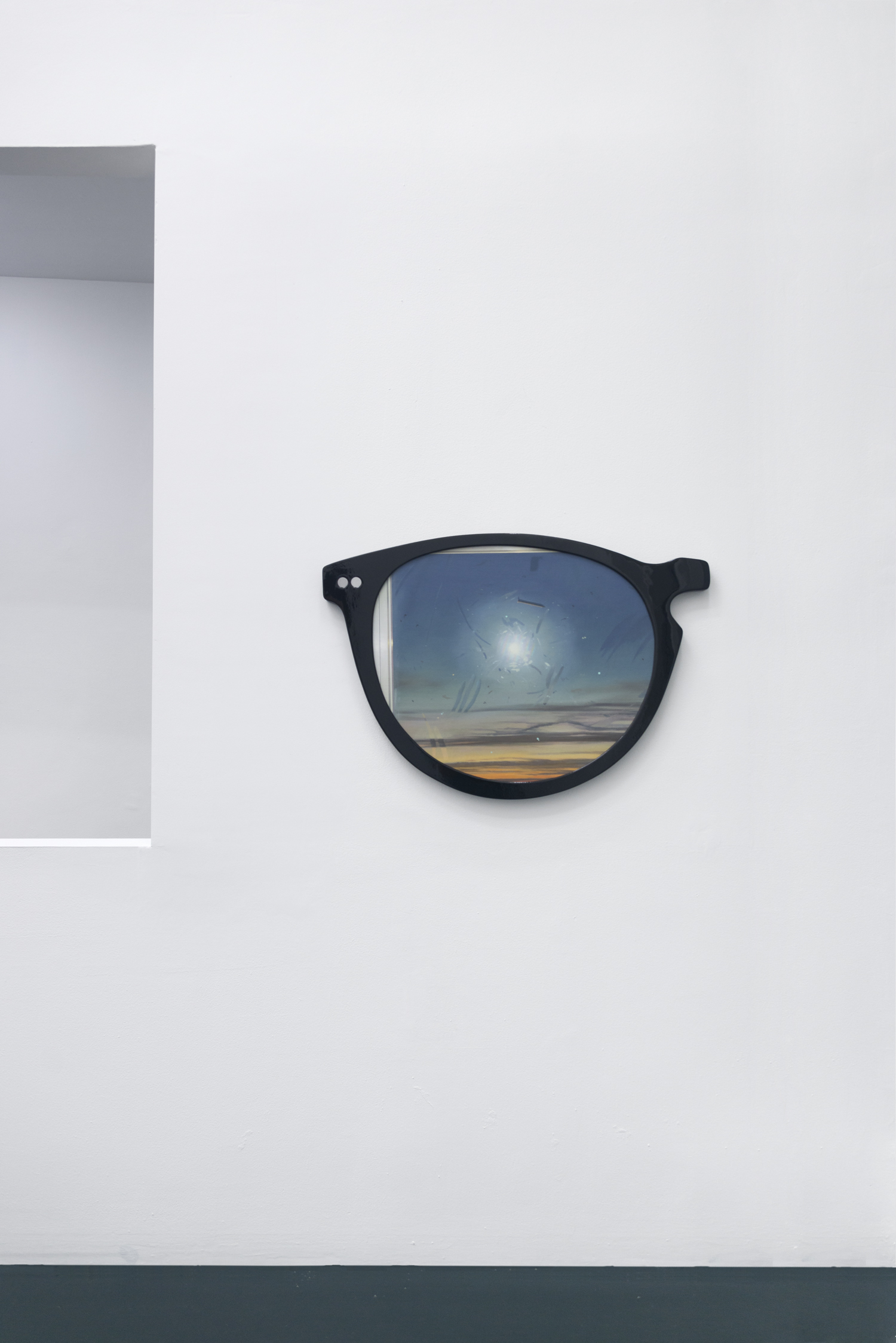
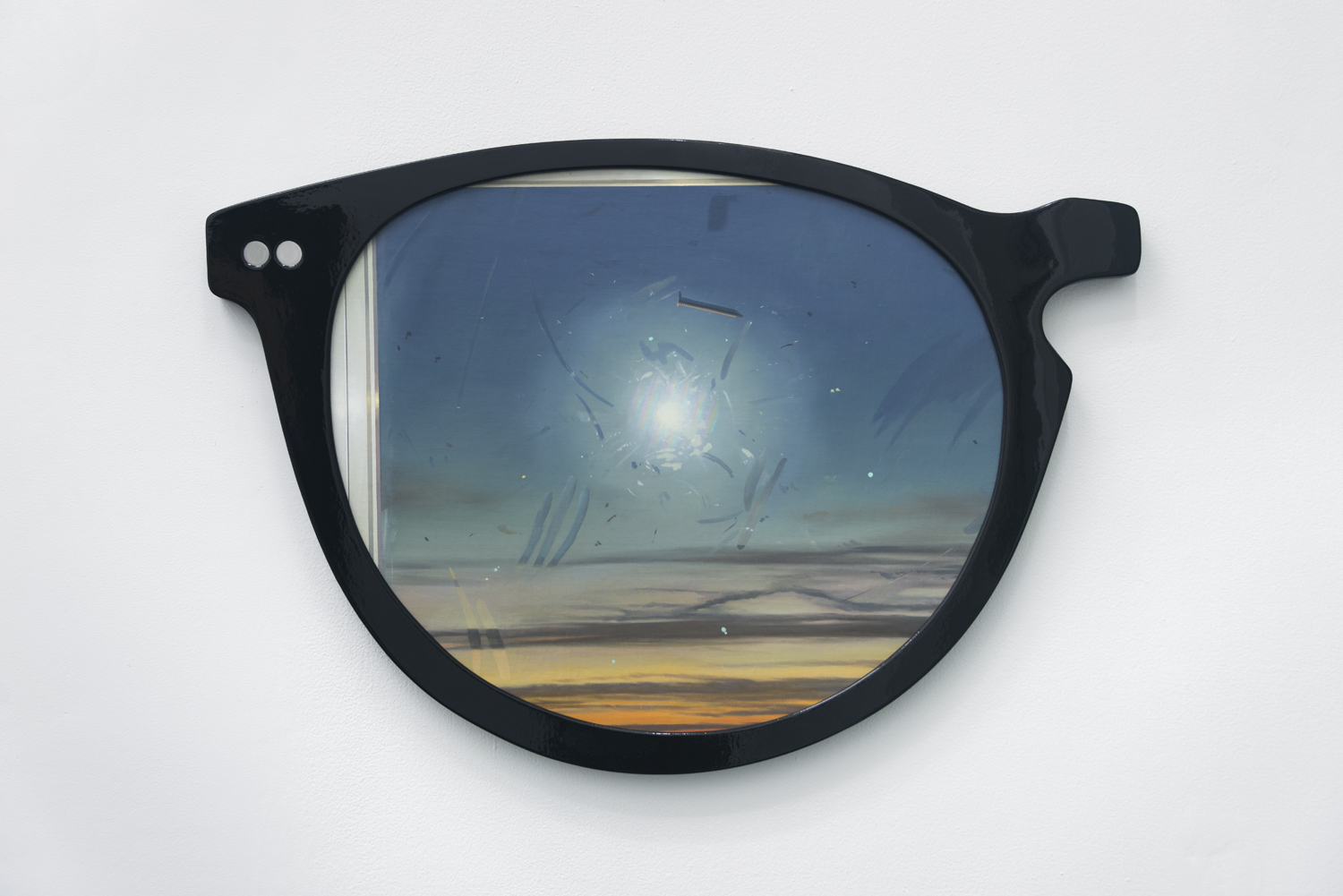
Earlier this year, I received a small, framed watercolor as a gift from my parents. Rendered in pastels and browns, the painting is of a tropical scene depicting the courtyard of a Spanish colonial Catholic mission in afternoon light. Extending beyond the confines of the chapel’s arched colonnade and flagstone pavers are verdant rolling hills of the Cuban countryside.
My grandfather, Roberto García, arrived as a Cuban immigrant to the United States in the mid-1920’s. He was a bartender by trade and an occasional Sunday painter. He had no professional training, but was appreciated by his family as a talented decorative painter. He made this image sometime in 1947, in the studio apartment he shared with my grandmother in the Bronx. For generations this watercolor adorned the walls of my family’s home, most recently in North Carolina. Now the painting resides in the old Philadelphia row-home I share with my wife.
Picture frames, Walter Benjamin suggests, keep in as much as they keep out. Within the frame is the object of fixation. In my grandfather’s watercolor, fixation takes the shape of an idyllic vision of the Cuban countryside, and with it the desire to recover the landscape of his youth. Was this image painted from a photograph, or was it imagined from his mind’s eye? Quite possibly it is a mixture of both. Outside the frame, however, is the threat of a less picturesque world: a sweltering, cramped studio apartment or in today’s terms, a home filled with unpaid bills, unread magazines, laptops, food waste, smartphones, power cords, and so on. This condition is crucial, for the life of this framed image is one of perpetual resettlement in the context of the tyranny of a new wall in a new room in an unfamiliar house, desperate for adornment and resolution.
The seven paintings I have made for this show are exemplary of images like this and spaces like these (though only one makes direct reference to the aforementioned painting). Like the watercolor, the spaces depicted are both fact and fantasy. They are simultaneously lived-in and new. The paintings depict interior spaces that have been corrupted, twisted or abused in some way. Walls are carved in the fashion of bathroom stalls. Condiments and various food or domestic items spell out words or concoct faces. Every painting suggests a frame of some kind; some are defined within the rectangle of the canvas, others—like the three glasses frames—literally dictate the shape of the images they contain. Every painting realizes it’s own kind of domestic fixation, some with equanimity, others with anxious apprehension.
The paintings of Archimbolo and de Chirico have been prominent in my thinking, as has TJ Clark’s reflections on Nicolas Poussin, specifically as he regards the nature of sight in Poussin’s work: the nominal or metaphorical attributes of water and climatic varieties in his skies, the patchwork of narrative vignettes, and their political and metaphorical persuasions.
The idea of recognition is also essential to my thinking about the work for this show, especially in the face paintings and glasses frames paintings. Much of it is informed by the words of author Amitav Ghosh. He writes: “to recognize is by no means to understand that which meets the eye...the knowledge that results from recognition, then, is not of the same kind as the discovery of something new: it arises rather from the renewed reckoning with a potentiality that lies within oneself.”
The ideal room can render the boundaries between the immediate world and the picture frame unnecessary. Within it, the distinctions between the image and the room become proximate and the ideal space provides the feedback of “renewed reckoning” that Ghosh suggests: its simultaneity in reprising the desire inherent within the framed image and the subsequent reconstitution of that image into a world otherwise indifferent to it.
– Paul Rouphail, 8/1/2018
~
Paul Rouphail has had recent solo and group exhibitions at Smart Objects, Los Angeles, CA; Fjord Gallery and Little Berlin, Philadelphia, PA; Fisher Parrish Gallery, George Adams Gallery, Nancy Margolis Gallery, and Microscope Gallery, New York, NY. The Miller Gallery at Carnegie Mellon University, Pittsburgh, PA; and White Columns online. Rouphail's work has been reviewed online and in print, including in New American Paintings, Maake Magazine, and Gestalten Press' Imagine Architecture, among others. He received his BFA from Carnegie Mellon University, and his MFA from the Rhode Island School of Design. He lives and works in Philadelphia, PA.